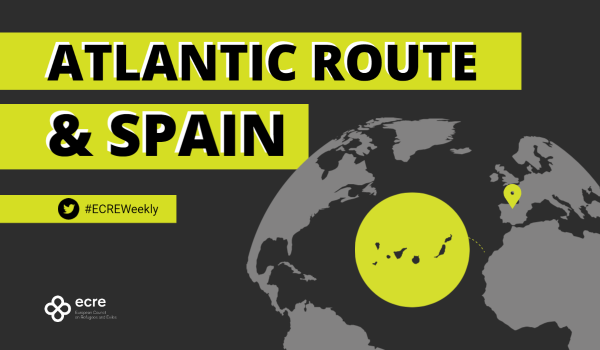- There has been an “unprecedented increase” in the number of irregular arrivals on the Canary Islands in 2024.
- People are continuing to try to reach the Canary Islands from northwest Africa despite the huge risks involved in trying to make the crossing.
- The Spanish government has announced a migration reform that will regularise approximately 300,000 migrants each year for the next three years.
There has been an “unprecedented increase” in the number of irregular arrivals on the Canary Islands in 2024. According to data released by the Spanish Ministry of the Interior, at least 41,425 people, including 5,699 unaccompanied minors, reached the islands in small boats between 1 January and 30 November. This “all-time record” number of irregular arrivals is slightly higher than the 39,910 who arrived during the whole of 2023. Although the Spanish authorities have noted a significant increase in the number of people from countries in Asia arriving in the Canary Islands, the main countries of origin remain Mali, Senegal and Morocco. In a report published in September 2024, the European Border and Coast Guard Agency (Frontex) noted that the rise of crossings via the Western African route was a result of “criminal groups involved in people smuggling in Mauritania” the quick reacting quickly to the “increased demand from sub-Saharan migrants transiting their country seeking to enter the European Union via the Canary Islands”. However, migration researcher Alberto Ares has highlighted that irregular migration only represents “5% to 10% of all migratory arrivals to Europe” and that the number of voyages along the Atlantic route has grown “because other routes are blocked”, referring to the security agreements that the EU has signed with a number of third countries, including Türkiye and Morocco.
Despite the well-documented dangers associated with it, people are continuing to make the crossing from northwest Africa to the Canary Islands. On 3 December, the Spanish Maritime Safety and Rescue Society (SASEMAR) rescued 121 people, including seven women and eight minors, off the island of El Hierro. According to Spanish authorities, the group had departed from Mauritania four days earlier. Around the same time, the Mauritanian police reportedly arrested 125 people of Pakistani origin who were also trying to make the crossing to the Canary Islands. These arrests follow 16 others which took place a few days earlier. The Mauritanian police’s actions may have benefited from the financial support provided under the EU-Mauritania Migration Partnership, which was signed in March 2024.
Spain has announced that it will grant residency and work permits to approximately 300,000 undocumented people living in Spain each year for the next three years. Announcing the policy on 20 November, Minister of Inclusion, Social Security and Migration Elma Saiz described it as “the most comprehensive and ambitious reform carried out in 13 years” and said that it was not only aimed at “cultural wealth and respect for human rights” but also “prosperity”. She explained that the country needed approximately 250,000 registered foreign workers per year to maintain its welfare state which has been affected by demographic challenges, notably an aging population and a falling birth rate. “Spain has to choose between being an open and prosperous country or being a closed and poor country. And we have chosen the former. That is why there are already 2.9 million foreigners paying monthly Social Security contributions [taxes],” Saiz said.
Related articles
- ATLANTIC ROUTE and SPAIN: Spain asks Frontex to patrol West African coasts ― Senegal to receive € 30 million from the EU to curb migration ― Spain states opposition to migration centres outside the EU; plans to regularise thousands of undocumented people ― Portugal is ‘slightly’ open to migration ― Record rescue in the Canary Islands (October 2024)
- ATLANTIC ROUTE and SPAIN: Spanish Prime Minister calls for early implementation of Pact ― Political row over arrivals in Canary Islands escalates ― EU announces € 14 million support for reception in Canary Islands ― Major boat tragedy off El Hierro ― Bodies found in boat adrift in Atlantic (October 2024)

